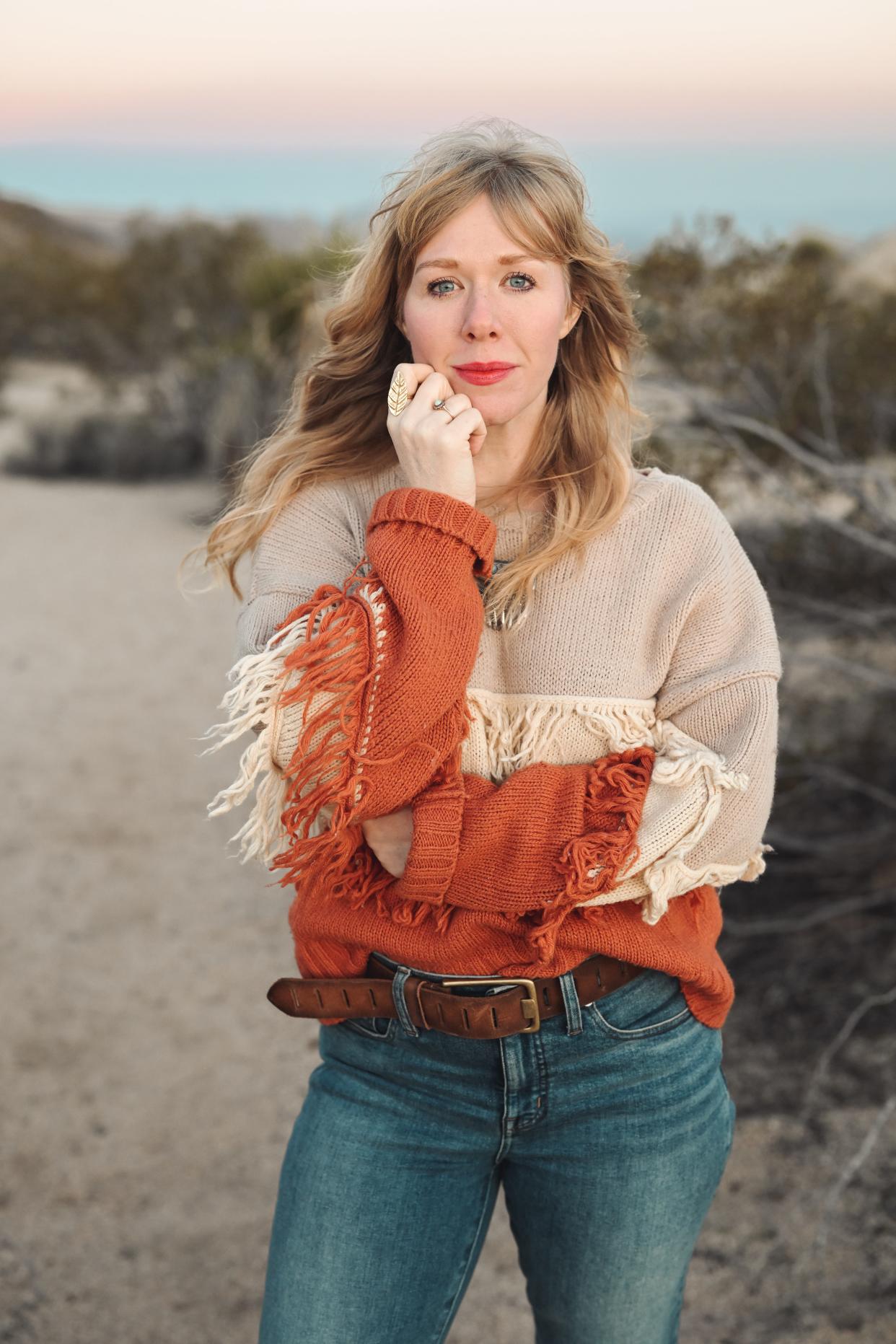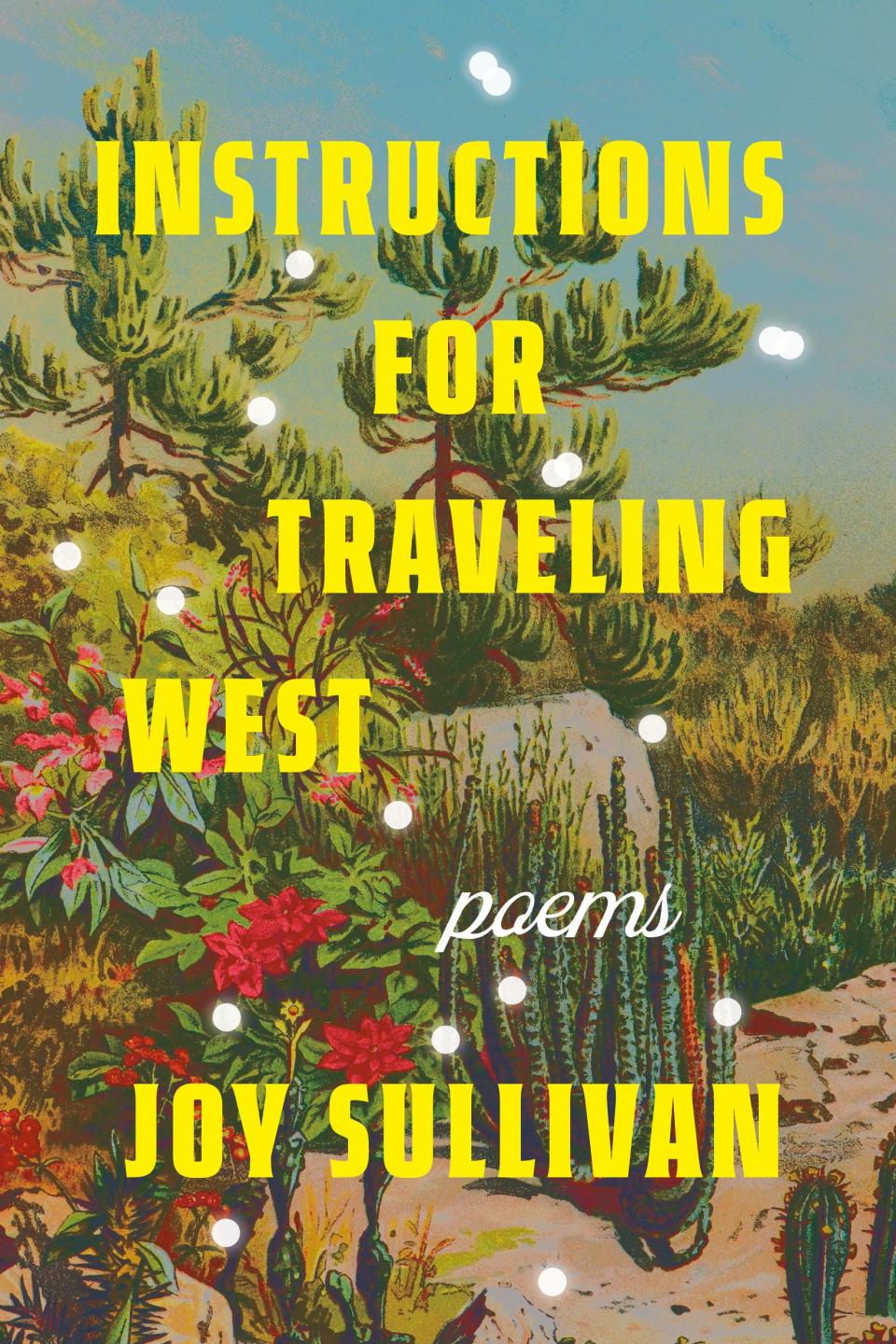Poet, former Columbus resident Joy Sullivan shares insights into her work and life

In 2021, poet Joy Sullivan left a relationship and a job as a copywriter with advertising agency Ologie in Columbus, and moved to Portland, Oregon.
Now she is publishing a collection of poems, “Instructions for Traveling West,” based largely on that experience, as well as on her earlier life.
She moved to Columbus in 2008. As a child, she moved frequently with her missionary parents and older twin sisters, spending time in Haiti and three years in the Central African Republic, where her father was a missionary doctor. When she was 10, a political crisis forced her family to leave the country, and they settled in Dayton.
On April 10, Sullivan is to be in conversation with Columbus poet Maggie Smith at Gramercy Books in Bexley. (The event is sold out.)
Sullivan, 38, spoke from her home in Portland.

Question: Tell me about poetry in your life: When did you start reading, when did you start writing it, why was it the form you gravitated to?
Joy Sullivan: I grew up overseas, and I always identified as a third-culture kid. I first came to the page because it was a place where I could communicate without having to know all the different languages. I was raised in the church, and we would have these long sermons, sometimes four to five hours. I was only allowed a notebook. So I wrote spy stories, and I would go home and read them to my sisters. I don't know if I would have found language in the same way if it hadn't been through the pressure of not knowing another way to communicate and to understand my world in very foreign and strange settings.
Festivals galore: A guide to spring/early summer festivals: From the Columbus Arts Festival to Red, White & Boom
Q: How much time are you able to give to poetry these days?
Sullivan: I give it as much time as I am able. When I made the big move from Ohio to Portland, I really rearranged my life. I had some goals: to spend more time in nature, to move my body more and to give as much time to poetry as possible.
Q: Tell me a little about the structure of the book.
Sullivan: It's loosely memoiric. Initially, I was thinking that I was going to write an arc: There's the beginning, there's the rupture, then there's home. As I was halfway through the book, I realized, that isn't true. And I didn't want to write a book that wasn't true. So instead of orienting the book toward this saccharine notion of home, where everything's tied up in a neat bow, I used lines from the poem “Instructions for Traveling West” almost as guideposts, separate lines to breadcrumb the reader through.
Q: How have your feelings about home changed? Do you think home is possible?
Sullivan: For me, it's always been one of those sticky words. It becomes really complicated. I think a lot of kids who have lived in many cultures, who have traveled a lot, really struggle with this notion. One gift that I recently gave myself was to, after 30 years, go back to the continent of Africa and make peace with some of that childhood that I had and that I lost abruptly when we moved back to Ohio.
Q: The Biblical Eve is a huge presence in the book and it's a very cheerful version of Eve. Why is she such a key character for you?
Sullivan: I love Eve. I'm really interested in the subversive act of taking a story that we all know, the Biblical myth, the Genesis myth, and what would it look like from an inherently feminist perspective in which God had social anxiety, Adam wasn't sure what he was doing and Eve could time travel or become omniscient. Historically, she's the first woman who left and leapt into the unknown. Instead of seeing that as a choice dredged in sorrow and grief, what if we saw that as possibility and opening?
More entertainment news: Jon Batiste coming to Columbus to participate in a musical residency with ProMusica
Q: Luck is also an idea that comes up a number of times in the book. What does luck mean to you?
Sullivan: For me, luck and faith are really intertwined. I didn't grow up believing that anything was lucky. I grew up believing that everything was destined and fated. Luck was interesting for me to interrogate in the book. If we believe we're lucky, do we become more lucky, more fortunate? Can we break this idea that some path has already been chosen for us, either by religion or by parent figures or by society?
Q: So, after this book, what's next for you?
Sullivan: I'm just on the edge of figuring that out. I think the next book will be more lyrical essays. I'm really thinking a lot about the scenes that came up in my return to my childhood home.
This article originally appeared on The Columbus Dispatch: Poet Joy Sullivan to appear at Gramercy Books on April 10
